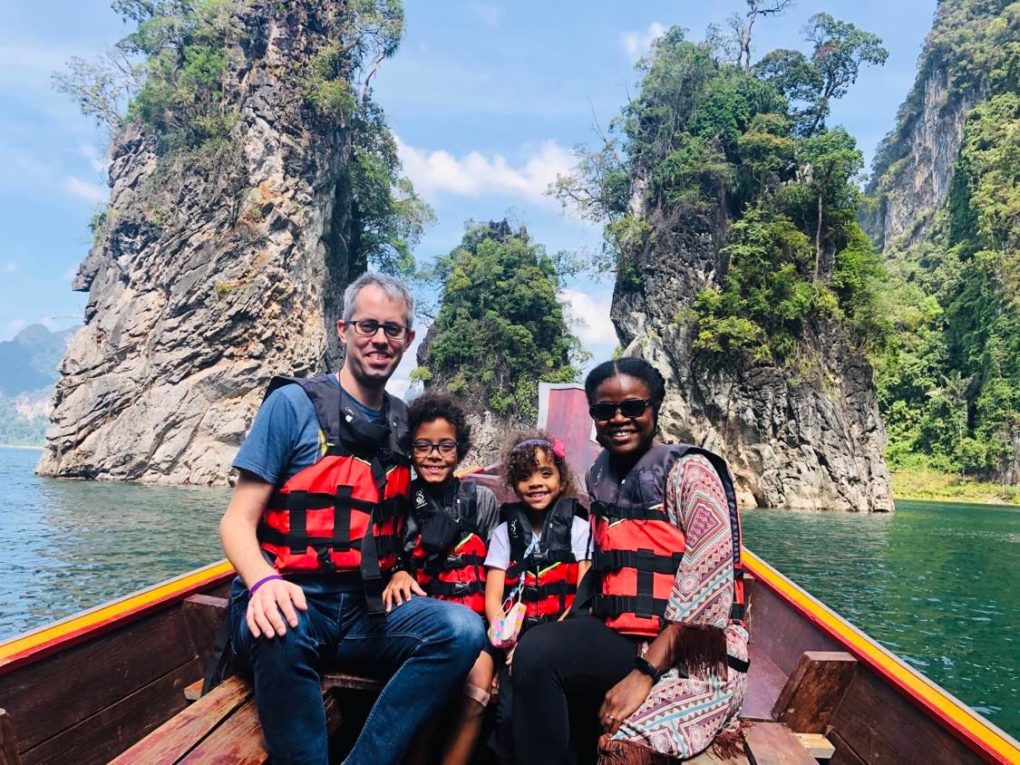While most people were bracing themselves for the turmoil forthcoming from the COVID-19 pandemic, teacher Darlene Holland was preparing herself for a journey that would take her, her husband, and their two children across the world.
Her family hosted foreign exchange students for three years and she’d always believed her destiny was to live abroad. After joining an international recruiting site for teachers, Holland was offered a job in March and moved abroad to Bangkok, Thailand in July 2020.
“I’m a ‘Why not’ kind of person and ‘The Universe is trying to tell me’ kind of person and when I got the offer, we didn’t know what was going to happen with COVID and I just felt like I needed to do it,” Holland said. “Once we got to the point where we had so much to lose if we didn’t go because we had sold our house and completely gotten rid of everything, we just had to. We were at the point of no return.”
The moving process to Bangkok was long and stressful. Although she received assistance from her new employer, Holland and her family were overwhelmed with paperwork as they prepared for the move. Each family member needed a VISA as well as proof of citizenship, marriage, and educational certifications.
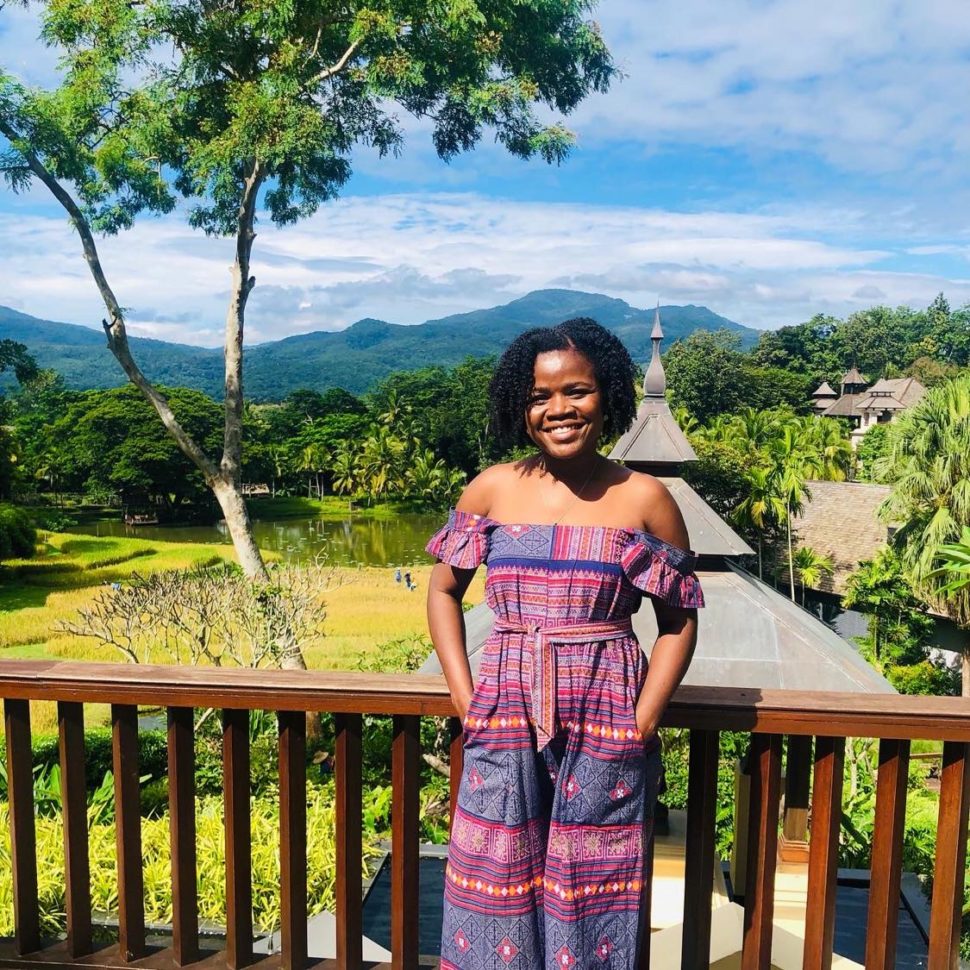
“Because I was moving for a job, I had to get everything certified,” she said. “I had to get all of my licenses certified and verified and then you add three dependents. So that adds another layer of paperwork because I have to prove that I’m married and that the children are mine so it’s just an enormous amount of paperwork.”
The process was tiresome as Holland gathered each document needed to relocate her family. Due to mounting COVID restrictions and the size of her family, it was difficult to acquire VISAs to travel to Bangkok. Flights in and out of Thailand were limited and only citizens and workers were being allowed entrance to the Asian country. At the last minute on the day of their flight, Holland tracked down the VISAs at a local post office before heading to Chicago for a 29-hour flight to the other side of the world.
Almost three years later, Holland and her family are still living and thriving in Bangkok. The capital of Thailand known by locals as the ‘great city of angels’, Bangkok has provided endless opportunities to Holland as she continues to navigate and adjust to her new home.
With the cost of living being substantially lower than in the US, Holland enjoys being able to afford luxury expenses while still saving. After arriving in Bangkok, they spent two weeks in mandatory quarantine. It wasn’t long after that they were able to find affordable housing large enough to accommodate their four-person family.
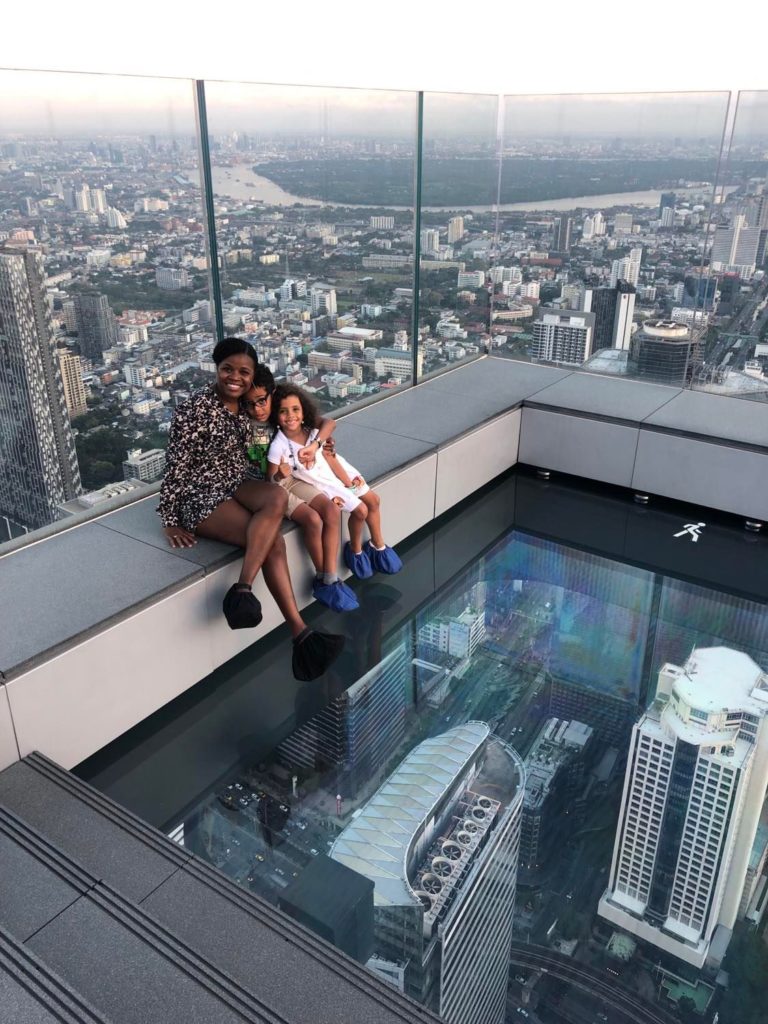
For only 600 USD a month, Holland and her family found a three-bedroom and three-bathroom house that met all of their needs. Utility and internet costs are also low and Holland enjoys luxuries like rideshare services and meal delivery for a fraction of what it costs in the US.
“You can find fancy things if you want to spend money, but for day-to-day stuff, it’s way, way, way cheaper,” she said.
Holland says many Black ex-pats are tapping into luxury living that seemed unattainable in the US. Things like personal delivery carriers and housekeepers are normal for most ex-pats residing in Bangkok and foreigners enjoy much higher wages than locals in the community.
“Nobody cleans their own house,” she said. “You hire somebody to come and do that and it’s cheap. We have a housekeeper who comes in and she cooks and she cleans and she irons and gets all the kid’s stuff ready and it’s 90 dollars for the week.”
Outside of financial freedom, Holland has found a renewed sense of peace and security living in Bangkok. Her fears of experiencing a school shooting or falling victim to senseless crimes have vanished as she’s integrated herself into Thai life. Whereas her experience living in the US was stressful and overwhelming, her time in Bangkok has awakened a deep calmness and serenity within herself.
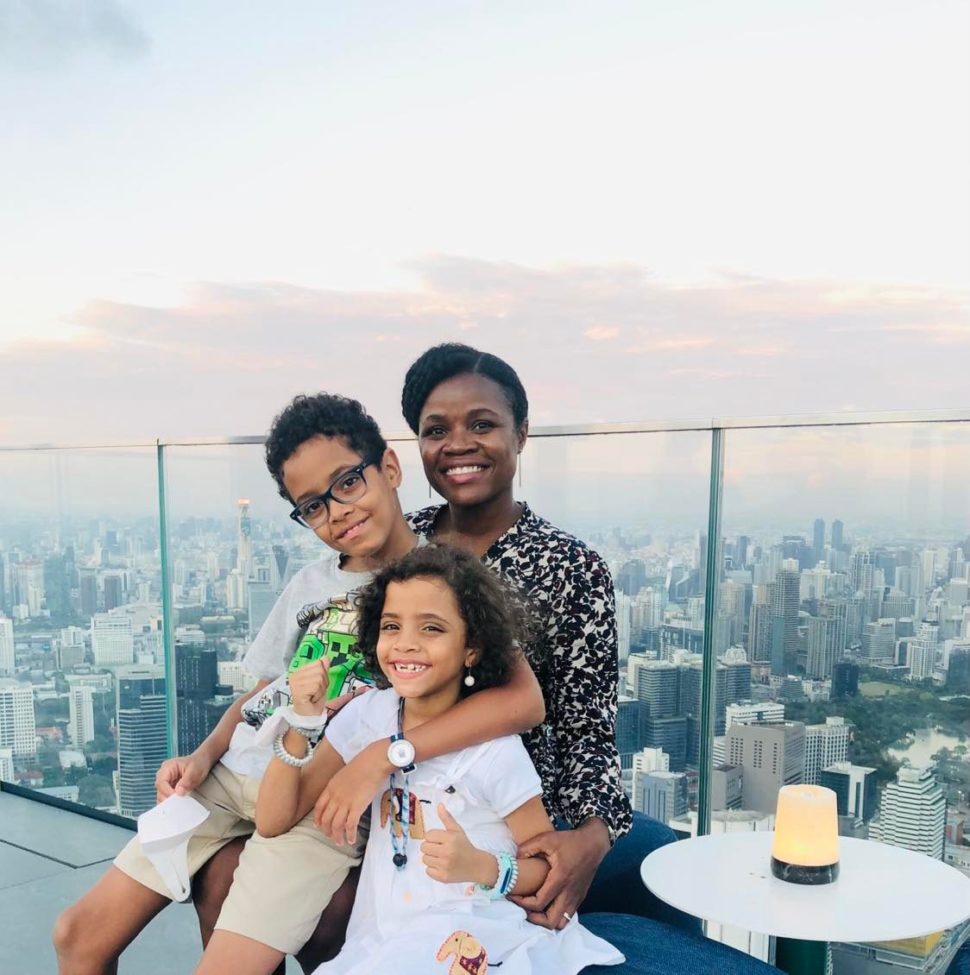
“It’s a calming feeling,” she said. “I don’t have to feel stressed. When I lived in the Midwest, there were places I would not get out of the car with my husband. Here we’ve been in the woods; we’ve been everywhere.”
Like many Black ex-pats, Holland has experienced the privilege of being an American abroad. Her American passport gains her respect in spaces throughout the country that Thai locals do not enjoy. Classism throughout the country is something Holland sees often, especially at work.
“Filipinos and Thai people are definitely not treated well in my opinion at work because they are just considered a lower class,” she said. “The Filipinos are immigrants and they come over here for a better life where we come over for culture or travel so it is seen differently. In this case, I am a privileged American and I stimulate the economy by hiring a maid or traveling so we are seen differently and treated differently.”
For the most part, Holland and her family live a carefree life in Bangkok. Although the locals are intrigued by her children’s curly hair, no one bothers them and they live free of a lot of the cultural burdens that plague African-Americans in the US.
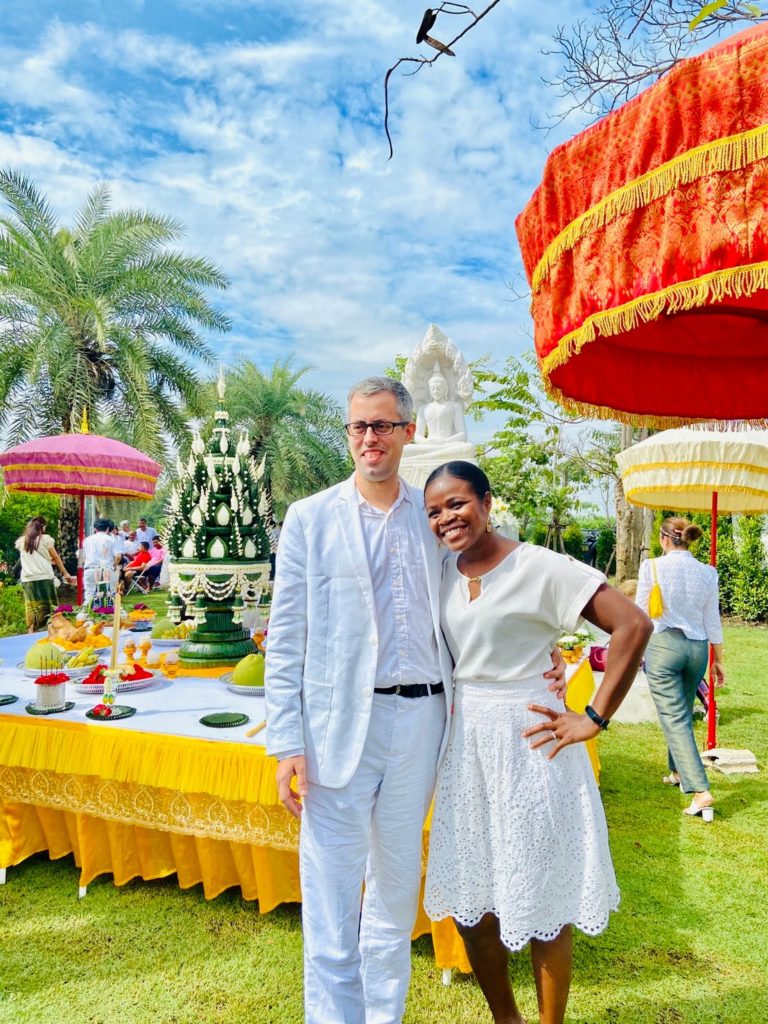
“Everywhere we go, whether it’s a five-star hotel or the people selling food on the street, nobody cares,” she said. “People are just friendly overall. My kids get a lot of attention, but it’s not negative.”
Like most American teachers working abroad, Holland’s gross pay is more than what she was making teaching in the US and she is appreciated more for her knowledge teaching in Bangkok. Before relocating, Holland’s family would question her decision to be a teacher, but in Thailand, she is a valued and essential part of their education system.
“In the US, you’re just a teacher,” she said. “You’re ‘just’ a teacher and it’s kind of like anyone can do your job. You’re just a glorified babysitter. But abroad, especially if you are an American and speak English…we are a commodity.”
Despite being an obvious asset, Holland still experiences the weight of being a Black woman in the workforce and feels the chip that is placed on her shoulder in her work environment. Although she is abroad, the pressure to prove herself as one of the few Black faces at work still followed her.
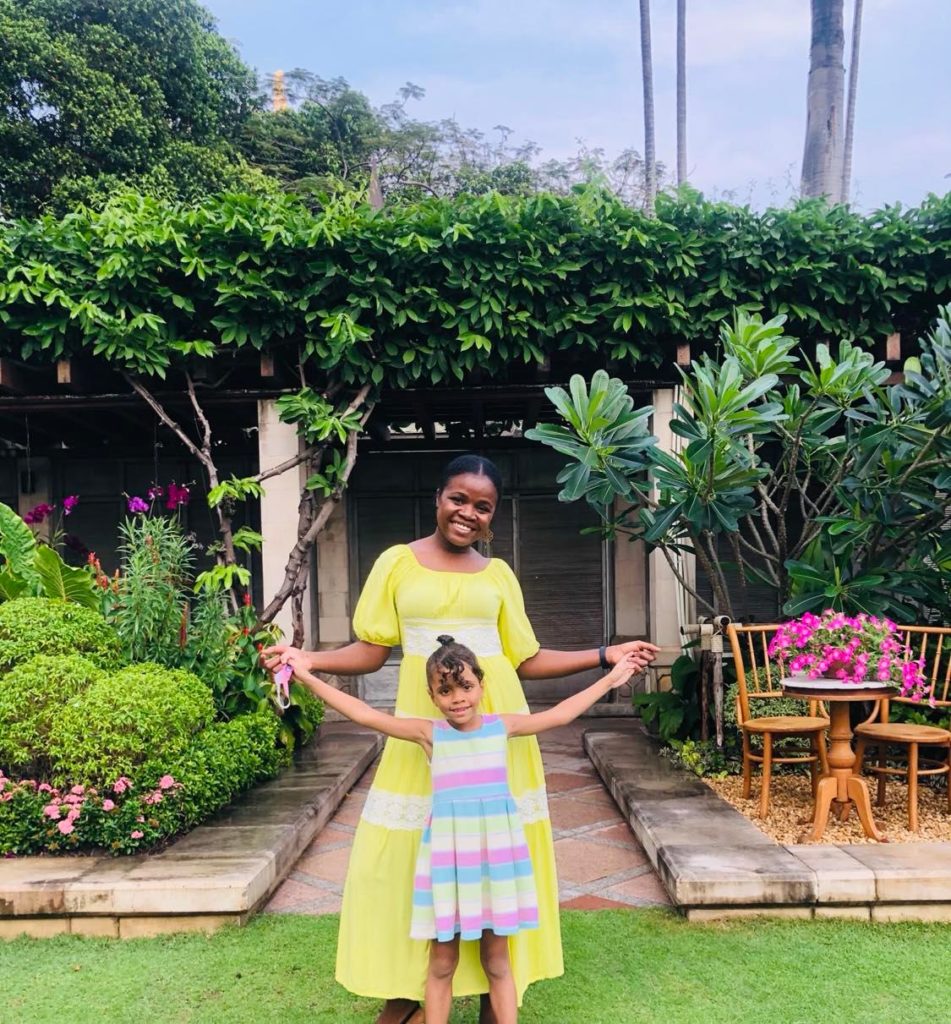
“Discrimination against black folks, especially black women, that does not just go away,” she said. “I think it presents itself differently. So it’s not a feeling of ‘Oh I’m not safe’ or “I’m going to be shot’. It’s more like this person feels like ‘Why is she here?’”
Yet still, life in Bangkok is a dream for Holland compared to the rat race of the United States. Soon she plans to move her and her family to Europe to teach and, although they’ve made the journey home to visit, has no plans of ever living in the US again.
“It’s not even worth the stress because at this point in my life I have no desire to go back and live in the US because I have found peace in this new lifestyle that I don’t have to stress so much or worry,” she said. “Those struggles still exist and you do face day-to-day struggles but the pros outweigh the cons in my experience.”
Still, at the beginning of her new life abroad, Holland hopes more Black Americans will move abroad and release themselves from the hype surrounding living in the US. With a world full of new horizons and possibilities, Holland believes it’s impossible to not find one’s tribe while living overseas.
“It’s a very tedious thing to even think about, moving abroad, but once you do it you’ll meet other people who are doing the exact same thing,” she said. “And you’ll always find community. There are plenty of us out there.”
